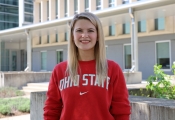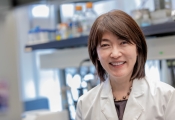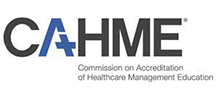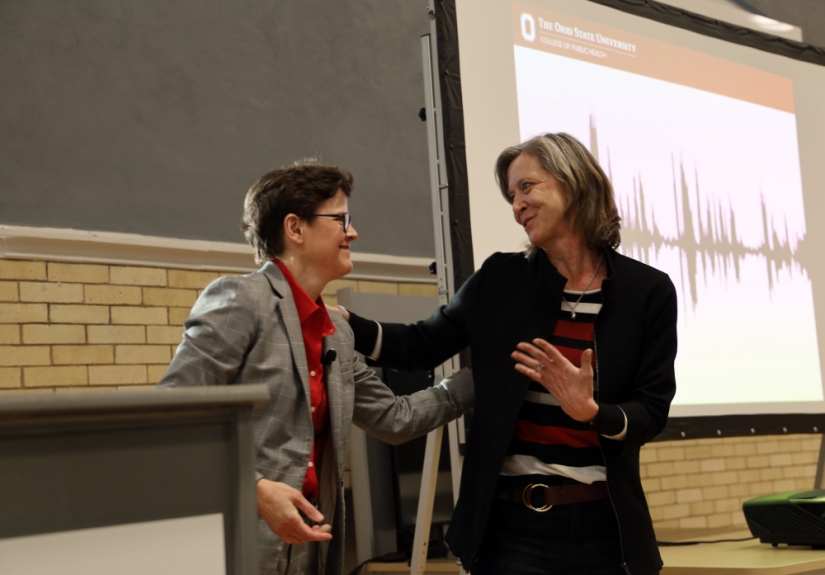
In her first State of the College address, held Feb. 19, Ohio State College of Public Health Dean Amy Fairchild emphasized the college’s strengths in interdisciplinary teaching and learning, addressing health inequalities and empowering communities.
First, though, she played “Faith” by Stevie Wonder featuring Ariana Grande.
“When I teach, I always open and close with music,” said Fairchild, who joined Ohio State last July after serving in multiple leadership roles at Texas A & M University and at Columbia University’s Mailman School of Public Health.
“Each piece, however different, is a way for me to underscore the core point I’m always making about my definition of public health: it’s an argument,” she said. “It’s an argument about what we owe to and what we sometimes must do to each other in the name of our common well-being.”
Like good arguments, songs often speak to the politics and socioeconomics of the time and can therefore open up discussion in the classroom, she said, noting her commitment to helping students develop their own voices through critical dialogue.
“Growing up, I felt like I had my distinctive voice, but something sometimes happens to girls and women in particular, and our confidence in our voice can falter,” said Fairchild, whose research and professional service have focused on public health ethics, particularly related to privacy, paternalism, panic and disease control.
She recalled her own voice faltering during her time as a graduate student at Columbia, where she earned a master’s in public health and doctorate in sociomedical sciences (history).
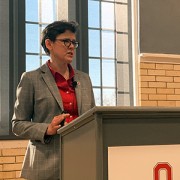 “You probably can’t hear it now, but I sounded like I was from Texas, which has the power to trigger any number of assumptions. Not only in people, but also in myself,” Fairchild said. “It wasn’t until a few years into my faculty career that I came to trust my own voice again. My teaching career has been about finding ways to ease that journey for my students.”
“You probably can’t hear it now, but I sounded like I was from Texas, which has the power to trigger any number of assumptions. Not only in people, but also in myself,” Fairchild said. “It wasn’t until a few years into my faculty career that I came to trust my own voice again. My teaching career has been about finding ways to ease that journey for my students.”
Now, Fairchild’s vision as dean centers on defining and lifting up the collective voice of the College of Public Health. The rest of her speech stressed the need for the college to refine its voice in a way that reflects its uniqueness from peer institutions, and that enters into local, state, national and international discourse in a meaningful and memorable way.
“I want our voice to be provocative and probing; unafraid to be bold. I want our voice to be empathetic and open,” Fairchild said. “Our voice should inspire trust. It should be welcoming — quick with an invitation to people of all perspectives and life experiences to join the table.”
She recognized the college’s wealth of scholarship on societal conditions that unfairly hold communities back and its passion and advocacy for policy change.
“Identifying and addressing stigma, the social and economic conditions of women and systematic, structural exclusion of minorities and communities — those are all key to advancing public health,” Fairchild said. “We can neither identify nor address the drivers of disease and disparities unless we can connect to and empower communities, positioning them to lead us toward a healthier future.”
Dean Fairchild then praised the college’s integrated approach to graduate and undergraduate education, which spans more than 20 interdisciplinary academic programs, including eight degree specializations and 10 dual/combined degrees, such as the undergraduate public health sociology specialization in collaboration with the College of Arts and Sciences and the DVM/MPH degree in partnership with the College of Veterinary Medicine.
“The sheer number of academic connections that we make sets this college apart from its peers nationally,” she said.
Fairchild emphasized the need moving forward for strategic planning, revitalizing development initiatives, addressing access and affordability and increasing diversity among students, faculty and staff.
“Every one of us benefits when we seek out those voices we are missing and when we listen.”

